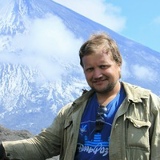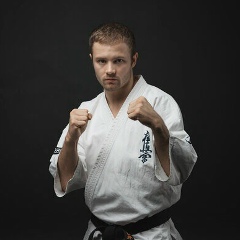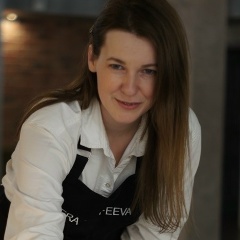Про вчерашнюю Нобелевскую премию, российских инвесторов и наш с Юрой Пековым и Алисой Кузнецовой курс по биотеху.
1 октября 2018 года Нобелевскую премию по медицине получили Джеймс П. Эллисон и Тасуку Хондзё. В 90-х они занимались изучением особенностей взаимодействия иммунной системы с раковыми клетками. На основе этих работ в конце 2000-х/начале 2010-х у онкологов появился целый класс иммунотерапевтических препаратов: так называемые чекпойнт-ингибиторы, к которым относятся Yervoy (ипилимумаб), Opdivo (ниволумаб) и Keytruda (пембролизумаб). Последние два препарата стали не просто блокбастерами (так называют препараты с продажами больше $1 млрд. в год), а супер-блокбастерами с продажами больше $1 млрд. в квартал.
Keytruda оказалась особо эпичной - в мае прошлого года её применение одобрили для ЛЮБЫХ солидных опухолей с генетической особенностью: микросателлитной нестабильностью. Это первый случай в истории FDA, когда лекарство получило одобрение по биомаркеру, а не по типу опухоли. По сути, это реально революция в подходе к лечению онкологических заболеваний. Поэтому Нобелевская Премия сейчас и оказалась весьма актуальна.
Мало кто знает другой факт (спасибо за пост, Илья Ясный) — Джеймс П. Эллисон является сооснователем двух стартапов в иммунотерапии: Jounce Therapeutics и Neon Therapeutics, в которые вложены деньги Фармстандарта. Так что за одним из Нобелевских лауретов тоже стоят русские деньги) Деньги Фармстандарта и Millhouse (венчурного фонда Романа Абрамовича) есть также в российском Биокаде, а портфеле которого есть своя иммунотерапия.
Хотите узнать больше таких инсайтов и понимать биотех за пределами хайповых новостей? Знать, как там зарабатывают и тратят деньги? Приходите 9 октября к нам на курс "Биология глазами венчурных инвесторов". Там вам дадут обзор перспективных направлений, расскажут много реальных кейсов реальных компаний, расскажут о структурах сделок и краеугольных научных основах. Будут спикеры как из профильных венчурных фондов, так и фаундеры биотех-компаний, и прикладные учёные.
Прошлый курс делали по заказу фонда Medme, в это раз будут слушатели из Baring Vostok Capital Partners, а Кирилл Белов из Impulse VC так вообще второй раз собирается)
1 октября 2018 года Нобелевскую премию по медицине получили Джеймс П. Эллисон и Тасуку Хондзё. В 90-х они занимались изучением особенностей взаимодействия иммунной системы с раковыми клетками. На основе этих работ в конце 2000-х/начале 2010-х у онкологов появился целый класс иммунотерапевтических препаратов: так называемые чекпойнт-ингибиторы, к которым относятся Yervoy (ипилимумаб), Opdivo (ниволумаб) и Keytruda (пембролизумаб). Последние два препарата стали не просто блокбастерами (так называют препараты с продажами больше $1 млрд. в год), а супер-блокбастерами с продажами больше $1 млрд. в квартал.
Keytruda оказалась особо эпичной - в мае прошлого года её применение одобрили для ЛЮБЫХ солидных опухолей с генетической особенностью: микросателлитной нестабильностью. Это первый случай в истории FDA, когда лекарство получило одобрение по биомаркеру, а не по типу опухоли. По сути, это реально революция в подходе к лечению онкологических заболеваний. Поэтому Нобелевская Премия сейчас и оказалась весьма актуальна.
Мало кто знает другой факт (спасибо за пост, Илья Ясный) — Джеймс П. Эллисон является сооснователем двух стартапов в иммунотерапии: Jounce Therapeutics и Neon Therapeutics, в которые вложены деньги Фармстандарта. Так что за одним из Нобелевских лауретов тоже стоят русские деньги) Деньги Фармстандарта и Millhouse (венчурного фонда Романа Абрамовича) есть также в российском Биокаде, а портфеле которого есть своя иммунотерапия.
Хотите узнать больше таких инсайтов и понимать биотех за пределами хайповых новостей? Знать, как там зарабатывают и тратят деньги? Приходите 9 октября к нам на курс "Биология глазами венчурных инвесторов". Там вам дадут обзор перспективных направлений, расскажут много реальных кейсов реальных компаний, расскажут о структурах сделок и краеугольных научных основах. Будут спикеры как из профильных венчурных фондов, так и фаундеры биотех-компаний, и прикладные учёные.
Прошлый курс делали по заказу фонда Medme, в это раз будут слушатели из Baring Vostok Capital Partners, а Кирилл Белов из Impulse VC так вообще второй раз собирается)
About yesterday's Nobel Prize, Russian investors, and our course on biotechnology with Yura Pekov and Alisa Kuznetsova.
On October 1, 2018, the James P. Ellison and Tasuku Honjo received the Nobel Prize in medicine. In the 90s, they studied the characteristics of the interaction of the immune system with cancer cells. On the basis of these works, in the late 2000s / early 2010s oncologists developed a whole class of immunotherapeutic drugs: the so-called checkpoint inhibitors, which include Yervoy (ipilimumab), Opdivo (nivolumab) and Keytruda (pembrolizumab). The last two drugs have become not just blockbusters (the so-called drugs with sales of more than $ 1 billion per year), but super-blockbusters with sales of more than $ 1 billion per quarter.
Keytruda turned out to be particularly epic - in May last year, its use was approved for ANY solid tumors with a genetic feature: microsatellite instability. This is the first time in the history of the FDA that a drug has been approved for a biomarker, not a tumor type. In fact, this is a real revolution in the approach to the treatment of cancer. Therefore, the Nobel Prize now has been very relevant.
Few people know another fact (thanks for the post, Ilya Yasny) - James P. Ellison is a co-founder of two startups in immunotherapy: Jounce Therapeutics and Neon Therapeutics, in which Pharmstandard's money is invested. So Russian money is also behind one of the Nobel laureates) Pharmstandard and Millhouse (Roman Abramovich's venture capital fund) money is also in the Russian Biocade, which has its own immunotherapy portfolio.
Want to learn more about such insights and understand biotech outside of hype news? Know how they earn and spend money there? Visit us on October 9 for the course "Biology through the eyes of venture investors." There they will give you an overview of promising areas, tell you a lot of real cases of real companies, talk about transaction structures and the cornerstone scientific foundations. There will be speakers both from specialized venture funds, and founders of biotech companies, and applied scientists.
The last course was done by order of the Medme fund, this time there will be students from Baring Vostok Capital Partners, and Kirill Belov from Impulse VC is going to do this for the second time)
On October 1, 2018, the James P. Ellison and Tasuku Honjo received the Nobel Prize in medicine. In the 90s, they studied the characteristics of the interaction of the immune system with cancer cells. On the basis of these works, in the late 2000s / early 2010s oncologists developed a whole class of immunotherapeutic drugs: the so-called checkpoint inhibitors, which include Yervoy (ipilimumab), Opdivo (nivolumab) and Keytruda (pembrolizumab). The last two drugs have become not just blockbusters (the so-called drugs with sales of more than $ 1 billion per year), but super-blockbusters with sales of more than $ 1 billion per quarter.
Keytruda turned out to be particularly epic - in May last year, its use was approved for ANY solid tumors with a genetic feature: microsatellite instability. This is the first time in the history of the FDA that a drug has been approved for a biomarker, not a tumor type. In fact, this is a real revolution in the approach to the treatment of cancer. Therefore, the Nobel Prize now has been very relevant.
Few people know another fact (thanks for the post, Ilya Yasny) - James P. Ellison is a co-founder of two startups in immunotherapy: Jounce Therapeutics and Neon Therapeutics, in which Pharmstandard's money is invested. So Russian money is also behind one of the Nobel laureates) Pharmstandard and Millhouse (Roman Abramovich's venture capital fund) money is also in the Russian Biocade, which has its own immunotherapy portfolio.
Want to learn more about such insights and understand biotech outside of hype news? Know how they earn and spend money there? Visit us on October 9 for the course "Biology through the eyes of venture investors." There they will give you an overview of promising areas, tell you a lot of real cases of real companies, talk about transaction structures and the cornerstone scientific foundations. There will be speakers both from specialized venture funds, and founders of biotech companies, and applied scientists.
The last course was done by order of the Medme fund, this time there will be students from Baring Vostok Capital Partners, and Kirill Belov from Impulse VC is going to do this for the second time)
У записи 32 лайков,
4 репостов,
4638 просмотров.
4 репостов,
4638 просмотров.
Эту запись оставил(а) на своей стене Андрей Афанасьев




















































